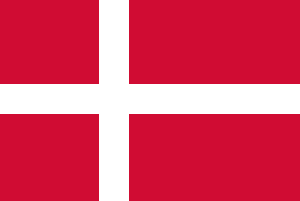
Denmark
Denmark, together with 11 other European countries, was a founding member of CERN in 1954. During the early years of the laboratory, the CERN Theory Group was based in Copenhagen, led by Danish Nobel Laureate Niels Bohr.
From the beginning, Danish physicists have done research at CERN in high-energy physics, nuclear physics and low energy physics. Experimental high-energy physics in Denmark is concentrated in the Niels Bohr Institute (NBI) in Copenhagen. It started with emulsion and bubble chamber experiments, followed by electronic experiments at the ISR and SPS. In the eighties, NBI joined the UA2 experiment at the SPS antiproton-proton collider followed by two experiments – ALEPH and DELPHI – at LEP. In parallel, a heavy ion group was formed, first doing experiments at the SPS (NA44) and the BRAHMS experiment at RHIC at Brookhaven while preparing for the ALICE experiment at the Large Hadron Collider LHC. The two LEP groups have merged and joined the ATLAS experiment at the LHC. This group has also invested a major effort in the development of NorduGrid.
NBI and the Department of Physics and Astronomy (IFA) at the University of Aarhus were amongst the founders of ISOLDE. IFA groups are also involved in fixed target experiments at the SPS and at the low energy antiproton facility.
This page was last updated on 21 May, 2025